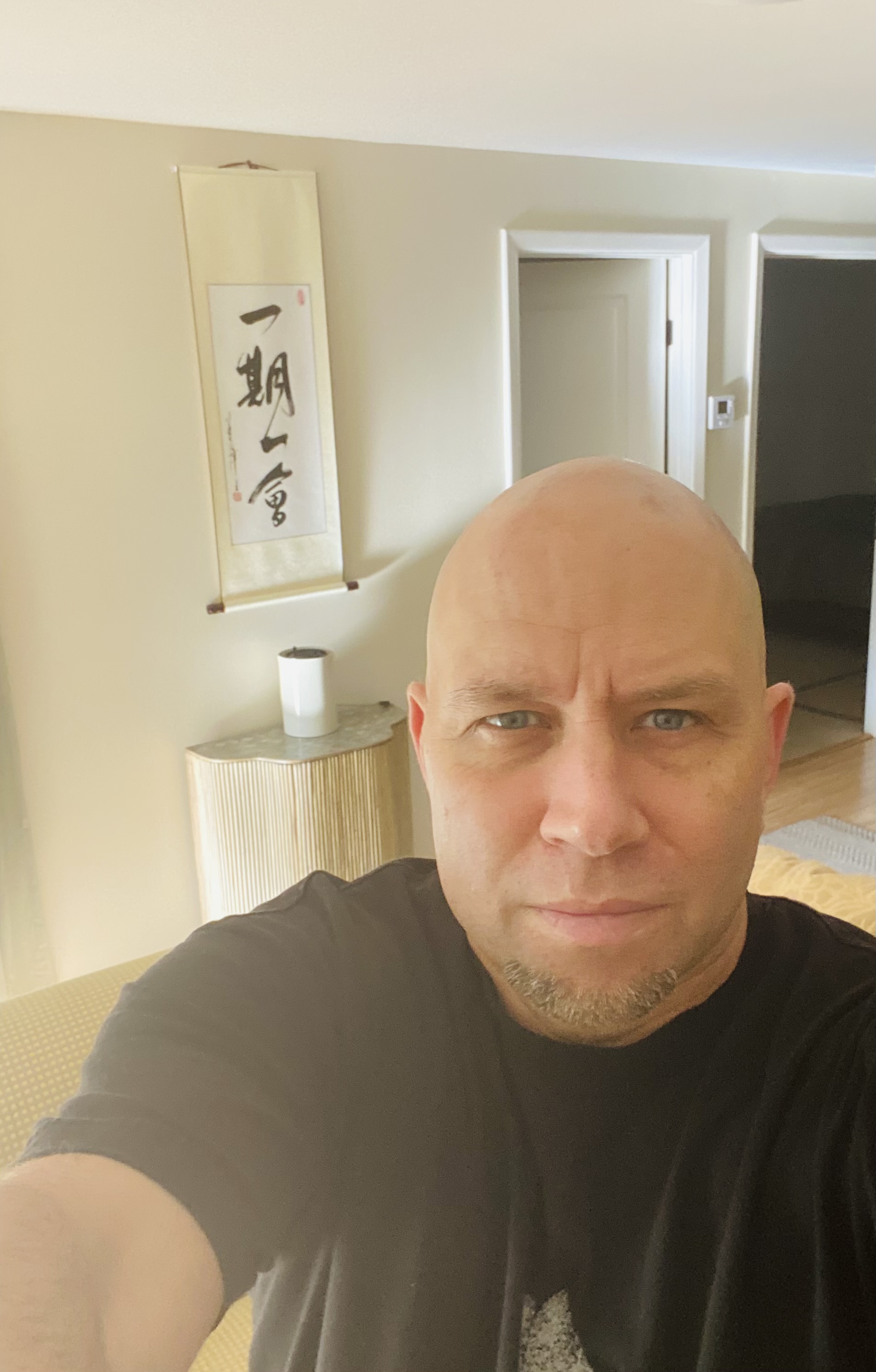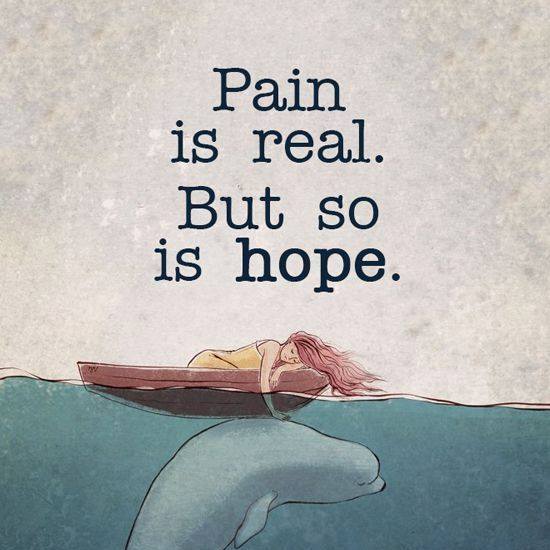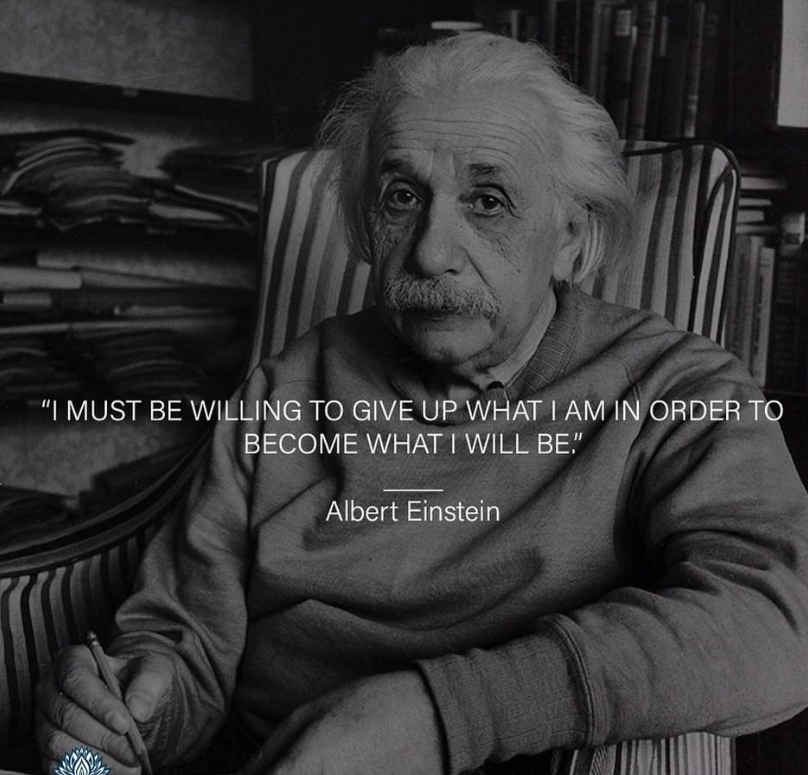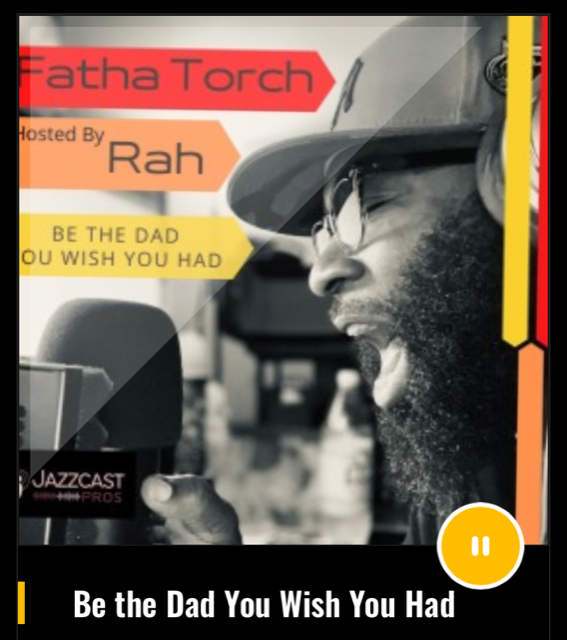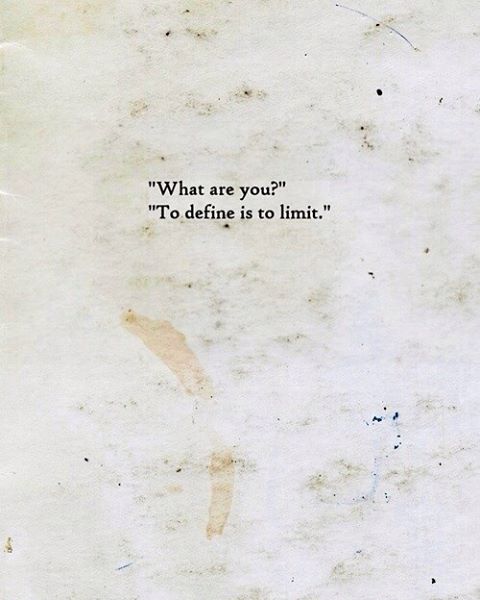Episode Transcript
[00:00:00] Speaker A: And. And just to kind of, like, not to, like, I don't want to. I don't want to talk about you, you in the third person, as if you're not here. But. But I know that one of the things that you and I talked about, I think it was maybe several years ago, was this idea that I think the shift for me was I stopped asking the why.
And because I feel like it's not for me to know what the big picture is, and I'm okay with that. I think somewhere along the way, I became peaceful with that. It's not for me to see the big picture. It's just for me to be as present with myself as I can, to be as aware as I can about what I think my role is.
[00:00:49] Speaker B: If I could interject this real quick about that whole notion of sort of, because I think we shared that actually, I have on a postcard someplace, that very thing that don't ask why. Ask how, meaning. And it's for times of difficulty or confusion to not ask, like, why is this happening to me? But how do I get through this?
But that shift, if you never have the question of why, you will never know your how. But at a certain point, the why can drop away fully into the how.
[00:01:29] Speaker A: Yes. That's been my lived experience. And also to kind of jump off of that piece, too, is like I would say for me, it isn't even the how, it's the what.
And I turn that back on myself. What is being asked of me? What do I need to learn about this situation? What do I need to perceive in this situation?
[00:01:51] Speaker C: Wow. All right. It seems as though.
And that isn't scary for you guys, because once you let go of the why and you just allow that to collapse into the how or the what, whatever you want to call it, you're saying, okay, there is no ultimate. You're suspended over a bottomless chasm. Right.
[00:02:16] Speaker A: Kierkegaard's leap of faith, I guess so.
[00:02:19] Speaker B: One element that Lisa and I share is that we've let go to a place where we let go of our mental.
It's not mental. We let go of holding it together. We fell apart, essentially. We fell apart. I can tell you distinctly for me, and I know because I know Lisa. For Lisa, arriving at the comfortableness of just the existential, the comfort with the existential dilemma is directly tied to falling apart. And seeing that even if we fall apart, not only do we reassemble at a higher level, it actually allows that to happen so that when we hold it together, we're constricting ourselves in a way that doesn't allow an evolving in a way quite as rapid as.
Yeah. Hospitalization. Sure.
Sensical states of mind and being. Yeah, I've had that. And yet here, you know, people can look at that in many different ways, and I understand most or all of them, but from my own personal narrative, Lisa talked about courage, and I don't know that I had the choice. I don't think I was granted a choice.
[00:03:50] Speaker A: Me too.
[00:03:52] Speaker B: I do think it was grace that carried me through those.
[00:03:55] Speaker A: Me, too.
[00:03:58] Speaker B: But I do think that the confidence that Lisa and I have that you notice, rich, maybe tied to the cognitive and even emotional cognitive, holding it together, because we don't know what the alternative.
I'll offer this to, uh, what does the phoenix or the dragon do? What does it represent? Right, Lisa? I mean, do you want to talk.
[00:04:24] Speaker A: A little bit about that?
Oh, my gosh. I mean, the phoenix, of course. I have a tattoo of a phoenix. And for mean, rich, I gave you an earring, right? Do you remember? I gave you an earring of phoenix.
It has been a very powerful symbol for me because I'm very open about my mental health history, and I attempted suicide after that. Sort of very slow coming back from that. I made a commitment to myself that I would never do that again, that no matter the falling apart, no matter the experience for me, and I'm not making a judgment for other people, the decisions that they make for themselves and for their own life journey, but for me, I knew that I didn't need to do that in this lifetime. That was not my agreement. That wasn't the pact.
And so that phoenix tattoo that I got is literally a reminder on my flesh that I will rise again, and that no matter what I'm going through, no matter if I leap off into the abyss and I land to, whatever is there is going to reconsolidate itself. And I think, Joel, you just so beautifully put it that it's almost like they talk about the broken heart, right? When your heart breaks open, it's like it expands it and makes room for more. And I feel like that's happened over and over and over again a multitude of times in my life, but even more so, what I've noticed of late is that the first couple of times of surrender were enormous, were just incredible and fraught with a great deal of anxiety and pain and fear. And it's almost indescribable. I think if you haven't allowed yourself to be in that place of surrender, you might not have a sense of what that sort of like we talked about phenomenologically feels like. Yeah.
[00:06:54] Speaker B: Joel, just quickly, what you're describing, and maybe you could speak a little bit more about it, is the existential abyss. So could you speak a little bit about that? Because I think that it's that thing that is holding rich to hold himself together. The fear of the existential abyss, the unknowable quality of what we are and where we are. Yeah.
[00:07:20] Speaker C: What do again? So if I was asking Kierkegaard and Michi or Heidegger, what would they be telling me then? Really, more importantly, you guys. So it sounds.
Everything you're saying to me speaks volumes.
I get why.
How being able to face the abyss of confronting those deepest aspects of who we are requires tremendous courage. It sounds as though it requires tremendous strength. I don't know if I could do what you guys.
[00:08:05] Speaker A: I just. I want to add a qualification to this, and I think Joel will agree with, you know, if there's a difference here. Joel, please.
I had this realization, I think it was probably three years ago, that I've always marveled at Martin Luther King, Jr. Gandhi, Rosa Parks. Joel, I think I shared this with you, too, that I've always admired these people and how do they do this and what courage they have. And, wow, this is incredible. But I had this epiphany. Literally, it was this epiphany, this awakening moment of it's not courage at all. It is them being in total alignment with who they are, and they have no choice. So for me, there isn't a sense of, oh, my gosh, this takes courage to do this. Rich, when I tell you I don't have a choice, I'm telling you I don't have a choice. I don't feel like I have.
Let me take that back slightly. I have a choice. But the alternative is so out of alignment with who I am now that that would take more effort and energy to have to construct myself into something that is societally acceptable or that is agreeable or makes everybody feel comfortable.
That would feel more deadening to me than to look at that abyss and say, there is the universe. And I know in the deepest recesses of my being, I know that this is a benevolent universe, and I know that when I take a step off into that abyss, the universe is right there for me. But if I step into the world of culture and people and institutions and all of that, that is going to be something that's going to be very deadening to me.
I guess I would just distinguish about. For me, it doesn't feel courageous at all, because it feels very in alignment with who I am. And at the point now, it would feel so inauthentic for me to not be that.
That would almost require more effort and strength to be in that world than it would be to be kind of standing on the precipice. Now, I don't know if that makes sense, but absolutely.
[00:10:37] Speaker C: Yeah. Sounds like that's what both of you are saying, that being true to yourself in the deepest possible sense, in a way, is the easiest thing in the world. It's the.
[00:10:51] Speaker A: I learned that know, studying Gandhi and studying Martin Luther King, Jr. I mean, really like, trying to understand, because I was coming at it from the same perspective, that, wow, what courage they had, but they didn't experience it that way at all. We're looking at it from the outside, because they were. And not only that, but Martin Luther.
If you look at their last speeches and their last teachings, they knew the end was coming.
They knew it was coming. They prophesied in their own way, they knew the end was coming. And there was not an ounce of fear in them, because they knew that they were in alignment with their being. They knew that they were here to do what they were meant to do. And the length of time, any of those other factors, they become absolutely meaningless in the bigger scheme of things. And that was a huge epiphany for me. A huge awakening for me, I bet.
[00:11:49] Speaker C: Yeah. I mean, that sounds a lot like enlightenment. So how do you get that? How does that come? Where does that epiphany come from? It doesn't sound like something that you make happen. You can sort of follow a program, right?
And like, Joel was mean, you're saying you almost don't have a choice. It sounds like you guys are saying it forces itself on you. Almost. No.
[00:12:14] Speaker A: Well, I'll tell you that for me, that I would count maybe three or four that I think were life changing. Like, life altering epiphanies that I've had, and every single one of them has come at a time of extreme despair. Extreme despair. And I think that that's sort of know. Kierkegaard also talks about that, right? The multitude of despair and that you can have the despair of just giving up and quitting, or you have the despair of possibility. Right. Which is a paradox. But I think that I had this experience, actually, in Florida, the trip that I went to meet you, rich, that we met by happenstance, and I was sitting on the beach and had been really just not in a great place. I was going through a lot of things with my parents at the time and feeling really abandoned and rejected, and all of those kind of core notions about myself were falling away, and were both falling away and being reinforced at the same time, like, they were happening at my biggest fears, all of my triggers, everything was up. Okay, so I'm sitting on the beach in Daytona, and the sun is setting, and I literally have nowhere to stay because I happen to be there during biker week, which we know is notoriously impossible to find anywhere to stay. And I'm sitting on the beach thinking, oh, my God, I don't know where to go.
I literally am sitting on the beach, and I have nowhere to go. So I sat there all day long, and I'm sitting on the beach and the sun is setting, and I see it's the simplest thing in the world. I see this pelican come by, swoop down, get a fish. Like, the whole scene, right? And I was like, my God, that is fucking beautiful, right? And was just moved to the core, and then started looking at the sunset and started looking at the waves, and I was like, my God, this world is perfect. Literally, that's the word that came to mind. This world is perfect. And then as soon as that thought came into my mind, I was like, I am a part of this world.
I am a part of this creation.
I am perfect exactly as I am right now in this moment. And this was in 2017, I think. Was it 2017, rich? 2017? 2018, something like that.
And that was a huge epiphany for me, for me to be constantly judging myself, feeling my incompetencies, looking at all the faults that I have and the triggers that I have in this fragile way that I move through the world. I was like, that pelican is not thinking that. That wave isn't thinking that. It's perfect exactly as it is. And I am perfect, and I am exactly where I need to be. And it was from that, right after that happened, is when I was like, I need to find somewhere to stay. Went on Airbnb for the first time in my life and found Dominique, where she gave me this beautiful painting of the Buddha. And that has happened over and over and over again. So when I'm pushed up against the wall in those feelings of deep despair and deep self doubt, that is when the breaking open has repeatedly happened. And sometimes that period of being pushed up against the wall or being in the darkness of the falling into the abyss, like the feeling of falling, sometimes it's been more sustained. It's been for months. It's been for long periods of time, but every single time. And I guess just because experientially, this has happened every single time, man, when I come back, I come back with something from the gods. It's like, I come back with fire, I come back with diamonds, I come back with pearls, every single time. And I wouldn't give up any of those experiences that I've had that have been utterly terrifying. Absolutely terrifying. I would not give up any of those experiences for anything, because those things that I've gained in that journey are priceless, and no one can take them away from me because they have now been woven into who I am.
[00:17:31] Speaker C: Hard to follow that with. That's incredible.
That's really incredible. And same with you, Joel. I mean, they're not the same, but I mean, did your life insights. It almost sounds trivial to put it that way, but did your intimations of truth come through those same kinds of periods of adversity? That's also a bad way to put it. You know what I'm saying?
Did you have a similar experience?
[00:18:11] Speaker B: Yeah.
I think that when I think in terms of the expanse of time and I think in terms of how we look at justice or the metering out of justice and beyond justice, mercy, love and compassion, and the binding of karmas of individuals, I think of us, the three of us here, I think of, like, what are the karmic links or. They're not even links. It's a bound binding, I was going to say.
Lisa and I share different.
Some similarities and some differences, but certainly the three of us share a deep curiosity, how that curiosity manifests in our phenomenology, our intrinsic emotional and cognitive and spiritual life vary as we are each different signatures of the universe. But certainly Lisa and I, through just the utter absurdity of some of the situations that we've been in, have been forced to ask, what the fuck meant to that. Yes, we've asked the question, what the fuck? So deeply? Something cracked open in us.
Part of that asking that question, what the fuck?
Sometimes leads to destabilization. Because why? You're asking the question, what the fuck is? Because something so fucking untoward happened, that processed, addressed, assimilated, and ingrained in a kind of understanding and then wisdom to give to others. That when we talk about. You asked me much earlier on, Lisa asked me about meaning, purpose.
And so when I look at so in another language, rich, when I look at the traumas that I've had in early childhood and adolescence that have taken me till probably last year to extract the full content of what I was requisite required, or as Lisa says, which I'm in full accordance with, contracted to do that. I'm contracted do certain things in this incarnation, before I incarnated, I was agreed. I agreed to complete certain.
So as I deconstruct the insanity of certain events into questioning, looking at them and then seeing them lose my mind because there was no sense to them, then holding space for them to assemble my relationship with them, what is this to me? Then I begin to find myself in a very deep way. And then I can ask the very deep personal questions with sensitivity. What does this mean for my experience, my soul's journey through this incarnation? You can ask, why in that context, why did this happen to me? And if you ask why in that context, you ask why. And little by little, it reveals itself to you, and then you kind of merge why this has happened and what you have learned into a wisdom far greater than anything that eventually gets offered to the community, which is what I feel at a place I hopefully am arriving at now that the experiences that I have now, I'm able to reach people who have, in varying degrees and measures, experienced after I did what I have experienced. But I have a key. I have language, a code that I can break and translate and offer them a bridge to home, to the home within themselves that never changes but is not always recognized by oneself.
[00:22:31] Speaker C: And you both feel at home in the world now, to use a heideggerian phrase or. No, that's interesting. Why the difference and why? Just why, I guess.
[00:22:44] Speaker B: Well, some of this is language, just straight up language. But my understanding is one of the most profound experiences that I had was such a minor. It was like a blip, a moment of insight into things that I understood something where everything is in flux, shifting around me. And yet it's against a backdrop of an unchanging.
It's a backdrop of.
How do you even describe this backdrop that we are in? That it is all pervading. It is everywhere. There is no place that it does not exist in the snow leopard, Lama Govinda says it is close to us, but we are far from it.
[00:23:50] Speaker A: Yes.
[00:23:53] Speaker B: And so that all pervading nature of reality, budha mind or the Christ nature or Brahman, you know, it just. I can't tell you how.
Not just that this all makes sense. Like, how can that be? But it makes sense.
Not only does it make sense, when you begin to pull away the bigger veils, the bigger picture, the bigger expanse, you see a love expressed by for us, what seems like a roll the dice is the complete opposite of that.
[00:24:40] Speaker A: Agreed.
[00:24:43] Speaker B: What I mean by that is that it's like we are the die that are cast, but it is known what number will pop up. We don't know that until we have the experience through time, in the incarnation after incarnation, lesson after lesson. Who, what, when, where, and why. We will do what we will do. We won't know that it is known, but not by us. So how do we know it? The universe gives us these experiences to know ourselves in relation to others as well as ourself. And it the author of this, I refer to what some call God as actually, in many ways, with my own kind of sense of wanting justice. I think of God as the great accountant.
I can just burn all notions of worrying about whether this, that, or the other comes back to anyone. There's a great accountant that takes care of all that for me, that I'm actually employed by.
But the secret here, rich, is so are you. And so is like, there isn't anything here that isn't employed by it, but it's just the vows hide that from us. And there's a yiddish phrase that God is a fair boss, but he's slow to pay the wage.
We sow our seeds of mitzvah and goodness and service, but it doesn't come back to us at our own time. It comes back to us when the universe sees and deems.
[00:26:27] Speaker A: Yeah, so I think why I said no, I don't feel at home in the world. One, I think we all love Rumi here, and I deeply resonate with the quote. We're all walking each other home. This does not feel like home to me.
It feels like a part of the journey, but it definitely doesn't feel like the end point.
And for me, home is that place where I am in perfect alignment with the universe, with my highest self. That's where home is. And so that's why I say I don't feel at home, because I haven't manifested that yet within myself.
How about you?
[00:27:29] Speaker C: What do you think?
It depends on the day you ask. Well, again, I'm operating in a much higher spiritual dimension when I'm in the presence of you. Literally. I mean, honestly, I'm attuned to much more when I'm. When I'm in the presence of you guys. But I think in my heart of hearts all the time, I tend to feel like a lost soul. But at the same time and again, this is why I feel such a close kinship to you. And we always have.
I sense ultimately, it's just that I have, as Joel has intimated, just not. I don't know what it's going to take, but it reminds me of a hint. There's a few interesting, fun hindu stories about, from the scriptures, right? There's a prince who gets hit on the head, and he's wandering around his kingdom as a pauper, doesn't know where he lives, and he's looking home and everything. He doesn't realize he owns the whole thing, right?
There's a sense in which. Or a guy who's sleeping next to the person he loves, and in his dreams, he's searching for his love all over the world, not realizing he's sleeping right there in her arms the whole time. And I really sense, I guess, in my heart of heart of heart of hearts. If I could just wake up somehow, I could sense that and see that. And that's why I think what you guys say resonates so deeply with me.
[00:29:08] Speaker A: So here's something. When you have that thought, when you have those feelings of, am I just wandering in my own kingdom? Right?
Sink into your body. Where is that living? Get out of your head. Get out of the pictures of it. Get out of the images of it, and really just stop the thoughts. And when I have this, where in my body is this living drop down? And I think that when you're able to do that, and this is true, hopefully for anybody who's listening, that sometimes when we get caught up in these thoughts that repeat themselves over and over and over again within our body, that can be very helpful and instructive about where some of those resistances are. Perhaps there's an unknown. Like, by unknown, I mean that we're not aware of a trauma that either happened in this life or that we've carried in from a previous life, that might be sort of imprisoning that feeling of freedom within our body in that think, you know, Joel and I used to joke about this all the time, that I am so cerebral. Right? Remember Joel? We talk about it all the time. And Joel was so good about. He's like, okay, Lisa, get out of your head. Lisa. Okay, that's great, Lisa, get out of your head. And I feel like one of the things that, you know, it's an interesting thing, rich, because I know that you say this, and I know that you've said this repeatedly for almost the 30 years that we've known each other, but it's very interesting that maybe you're the person wandering the kingdom that he doesn't know that he's the king of. But I will tell you that in that wandering, whatever you touched in me, that was the thing that helped me to see myself and for me to see my own reality and the reality of something far more expansive and beautiful. And maybe, just maybe, that is your gift. Maybe that is the gift that you are there as a teacher. It's no surprise you're a teacher, that it's the way that you touch other people.
And you might be the blind prophet, right?
That you are awakening so many people around you while you yourself might perceive or feel that you aren't, or that you haven't perceived that within yourself. But something is moving through you in such a beautiful and profound way that so many hundreds, hundreds and hundreds of lives of people that you've come into contact with, that you have touched in this way and awoken them. And perhaps that is the gift. So I think that's another way to think about this, is any idea about what I had, about what my gift has, I can assure you, has been completely disabused by the universe. Completely. And that's been a big thing about ego, right? Like, oh, I know what my path is, and, oh, I know what I'm supposed to do.
And even this idea of, I'm in this co creative space with the universe, and the universe has asked me to do this. It changes all the time. It changes all the time.
And so just, I think being responsive, being responsive to the universe, and this is sort of coming in and does this feel in alignment with what I need to be doing right now?
Let's give it a try and see. And if this is bringing light and goodness and joy and anything of positivity to the people that I am touching in their lives, then, yes, that's where I'm supposed to be. And maybe it doesn't look like me being a teacher. Maybe it doesn't look like me being a writer. Maybe it doesn't look like that is me having an ego is by putting a boundary around it, as opposed to just responding to.
It's like a chemical reaction. Right, list. And I need to be ready to be catalyzed. I think that's a good way to say it. I need to be ready to be catalyzed.
